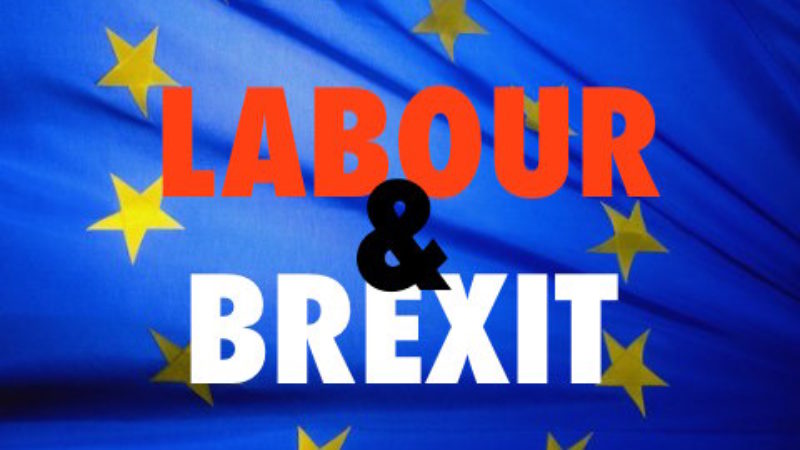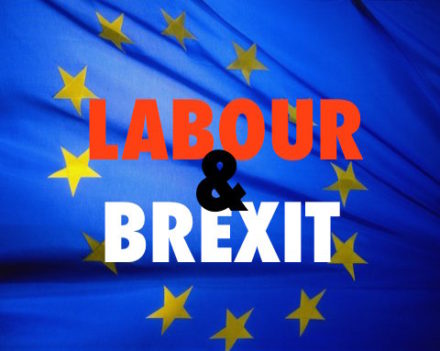

Dozens of Labour MPs have put their name to a letter demanding clarity from the Government over Brexit, and warning that they will not allow the UK to “sleepwalk out of the Customs Union”.
In the letter to International Trade Secretary Liam Fox, the 52 Labour MPs say that the Tories appear to have adopted positions on the terms of the leaving the EU “without any proper assessment of the economic impact such enormous decisions would have.”
The letter, organised by the Open Britain campaign, shows that the party is coming together to hold the Government to account, and comes as two Labour Shadow Cabinet members put 170 questions on the subject to Brexit minister David Davis.
A number of current and former frontbenchers have put their name to Open Britain missive, including Shadow Brexit minister Sir Keir Starmer and former Shadow Europe minister Pat McFadden. The letter asks Fox to clarify whether the UK will retain access to EU Free Trade Agreements and what new trade agreements he expects the UK to make.
Co-executive director of Open Britain Joe Carbery said: “The scale of the economic fallout from Brexit will be a direct consequence of the Government’s political decisions, which they must justify to the public.
“When billions of tax revenue is on the line, Liam Fox needs to provide hard evidence for leaving the Customs Union, not just warm words about distant hypothetical benefits.”
You can read the full letter signed by 52 Labour MPs here:
Dear Liam,
After the Conservative Party conference, we are deeply concerned that the Government appears set on a course towards a hard and harsh Brexit. Your direction of travel is reportedly towards abandoning British membership of the Single Market and leaving the EU’s Customs Union.
These positions appear to be being adopted without any proper assessment of the economic impact such enormous decisions would have.
As Secretary of State for International Trade you have a unique insight into the issue of our membership of the Customs Union. It is clear that your own personal preference is for the UK to leave and begin negotiating new trade deals. The benefits of this have, however, already been called in to question. Trading in to the EU outside of the Customs Union would mean confronting more red tape, for example rules of origin regulations, as was so starkly highlighted recently by the Japanese Government. Both Australia and the United States have said that meaningful negotiations cannot start until UK-EU trade relations are settled, which could take many years. Furthermore, determining our role on the World Trade Organisation will be complex and could take years, and it is also unclear whether we will be able to adopt current EU Free Trade Agreements.
As a result, before we sleepwalk out of the Customs Union, we believe it is imperative that you are much more up front with Parliament and the public about the consequences of this decision.
If we were to stay within the Customs Union, we should be around the table shaping future trade deals. If we are to leave, this should be based on clear evidence.
If it is in our interests to leave the Customs Union, you should be able to produce a rigorous and publicly available cost-benefit analysis to justify doing so. This should include a proper assessment of the impact on our manufacturing, service and agriculture sectors and should answer the following questions:
- Will the UK be able to retain access to all EU Free Trade Agreements on unchanged terms?
- What new trade agreements does the Government expect to agree on leaving the Customs Union; and on what timetable are they expected to be completed?
- What is the timescale for the expected economic gains the Government is projecting from these new trade deals? Which specific sectors will benefit through deals with which specific countries?
- What assessment has been made of the costs of increased trade barriers for UK-based businesses exporting in to the EU?
- Specifically, what is the Government’s estimate of the potential cost to UK exporters to the EU of complying with rules of origin regulations?
Unless you can materially demonstrate that we will be better off economically by leaving the Customs Union it can only be concluded that you are being disingenuous about hypothetical future trade benefits and in denial about the real costs of your plans. A fantasy land of future trade deals is fine for Conference speeches but big decisions such as this should only be taken with a hard-headed assessment of the impact in the real world.
Best wishes,
Rushanara Ali MP; Dave Anderson MP; Jonathan Ashworth MP; Ian Austin MP; Adrian Bailey MP; Roberta Blackman-Woods MP; Ben Bradshaw MP; Alan Campbell MP; Jenny Chapman MP; Ann Clwyd MP; Vernon Coaker MP; Ann Coffey MP; Stella Creasy MP; Alex Cunningham MP; Nic Dakin MP; Stephen Doughty MP; Jack Dromey MP; Julie Elliott MP; Bill Esterson MP; Paul Farrelly MP; Mike Gapes MP; Helen Goodman MP; Kate Green MP; Andrew Gwynne MP; David Hanson MP; Sharon Hodgson MP; George Howarth MP; Tristram Hunt MP; Alan Johnson MP; Diana Johnson MP; Graham Jones MP; Mike Kane MP; Liz Kendall MP; Peter Kyle MP; Shabana Mahmood MP; Kerry McCarthy MP; Pat McFadden MP; Ian Mearns MP; Ian Murray MP; Madeline Moon MP; Grahame Morris MP; Bridget Phillipson MP; Rachel Reeves MP; Virendra Sharma MP; Barry Sheerman MP; Ruth Smeeth MP; Nick Smith MP; Keir Starmer MP; Stephen Timms MP; Stephen Twigg MP; Chuka Umunna MP; Phil Wilson MP




More from LabourList
‘After years of cuts, Labour’s local government settlement begins to put things right’
‘The Sherriff of Wild Westminster: what must change in elections bill’
‘The hope that kills you’: Reflections from the final day in Gorton and Denton